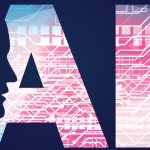Technology is evolving today by leaps and bounds. With the advent of artificial intelligence, Internet of things, smart devices and many such newer forms of technology, cybersecurity has come under a cloud of concern. As technology has evolved, so have the threats to cybersecurity. People are concerned about the safety of their personal information online. There are various cybersecurity crimes which are on the rise. The risks are not just for individuals but also for organizations. Companies are hiring information security professionals. These professionals have earned cybersecurity certifications and are qualified to handle the same.
The developments in the field of technology have affected cybersecurity in the following ten ways –
Security Breaches
Security breaches happen when an attacker tries to take advantage of employees by using scams. They breach the security network and access confidential information, documentation and personal information. Technological evolution is giving more resources to such hackers to breach into networks for illegally accessing their data.
Social Media Breaches
Hackers can access someone’s social media account on social media websites like Facebook, Twitter or LinkedIn. They can steal someone’s personal information from these sites illegally and use that information to access their email accounts, their bank account information and so on. Attackers can also use apps which have details such as a person’s location. They use this information to track the person’s whereabouts at a particular time. For example, they can learn whether a person is at home or at work at a particular time every day.
Identity theft
Identity theft through social media accounts has become quite common. Hackers lure individuals into sharing their private details and reveal passwords. They may even ask them to download malicious codes. When people download such codes unsuspectingly, it can result in virus download on their device. Since most users easily share information on the informal platform of social media, it is easy to get them access to a person’s name, age, location, birthday, family members or any other detail. It is often enough information for an attacker to cause a user social or financial harm.
Spear Phishing Scams
Phishing is a way of targeting random people so that attackers can access money from their accounts. This is done by getting access to their banking credentials. However, spear phishing means that the attackers are trying to get illegal access to any private information or business secrets. Hackers often target employees of an organization by disguising themselves on mail as a colleague from the same organization. As the mail appears to be from a colleague, the employees end up sharing confidential information as asked in the mail. This is a high cybersecurity risk as an attacker can disguise as anybody to gain information illegally.
Security Issues with Digital Data
With digitization spreading its wings, all information is going digital. Banking institutions store customers’ confidential details digitally. Organizations store their important data in a digital format on a cloud through cloud computing. Even personal information is stored in digital formats in email servers, smartphones, cloud etc. Because these methods are extremely convenient, efficient and cost-effective, they are being used by everyone and are here to stay. However, they also pose a serious security threat to data storage.
Botnets
Botnets are a network of computers which steal personal information from one computer and forward it to another computer. They can forward email credentials, name, age, financial data, online activity etc. These are often used to gather data and sell to others who might use it for illegal purposes.
Hacktivism
Hacktivism is the act of hacking a website for a political and social cause in an illegal manner. Hackers try to hack the websites which have a high number of followers or visitors. They gather their data and try to affect as many people as they can with their messages.
Spam
It is very common to get your email and social media accounts flooded by commercial messages. They are a nuisance for people and waste their time and data space.
Malware
Hackers make use of malware to attack your computer to get access to data. The attack consists of a virus, trojan horses or computer worms.
MIM Attacks
It means a Man-in-the-Middle attack. In this method, an intruder secretly intercepts a conversation between 2 or more people. Through this, someone can keep tabs on all your communication. It is a very serious breach of personal data security. The attacker can impede text or voice data exchange happening between people making them vulnerable to further attacks.
Attackers these days are able to breach the cybersecurity around digital platforms because of the access they have to better technology. We need to use the same technology to protect confidential and personal information from such attackers.
With every business going online and transactions happening electronically, the demand for Cybersecurity professionals is more than ever. In fact, given the way the digital world is progressing so fast, there are and will be umpteen opportunities for cybersecurity experts.
Many job aspirants have realized the career growth prospects in this field and have been signing up for cyber security courses. However, before enrolling in any such course, it is important to understand the core skills that employers expect from cybersecurity professionals.
Security Analytics Skill
This is the topmost technical skill requirement for cybersecurity professionals. They should be able to keep a close monitoring on a company’s computer networks and computing environments to hunt for threats and identify cyber-attacks. They should also be able to assess how weak or strong the threat is and how prompt action is required.
Secure Application Development Skill
These days, almost every business has a website and a mobile app. A part of the information is available for public information, while the rest is highly sensitive for privacy reasons. At times, developers forget to consider security right from the design stage. Organizations would need people who can develop a secure interface for their online presence across all platforms and devices from the foundation.
Toolkit Maintenance Skill
Cybersecurity requires owning or having knowledge of several tools. These tools need to be updated from time to time and also protected from ransomware attacks. A cybersecurity professional should be able to maintain these tools as per standard procedures.
Incident Responder Skill
Incident responders are akin to disaster management experts. When a cyber-attack happens, they know how to tackle the situation in a timely manner and help the organisation navigate through it with minimal damage. An incident responder is required to know all the internet protocols, programming skills, intruder techniques, IoT devices and malicious code. He is also expected to have strong negotiation skills to deal with cyber attackers.
Communication Skill
Communication is a skill that is a requirement of every role, and cybersecurity is no exception. A cybersecurity professional has to collaborate with developers, IT teams, vendors, end-users and other cybersecurity colleagues to ensure that all threats are captured and eliminated timely. If there is poor communication among everyone, the cyber attack could become a monster, and it may be too late to respond to the situation with massive damages.
Strategy Design Skill
A cybersecurity expert should be able to visualize the big picture and potential threats to create a robust security policy for the company. S/he should make sure that cybersecurity policy is integral to the overall business strategy.
Check out various cyber security courses online to develop the necessary skills. Talentedge offers Certified Cyber Warrior from IIIT Bangalore, which is a comprehensive course best equipped to meet the growing demand for Cyber Security Professionals in the job market.








